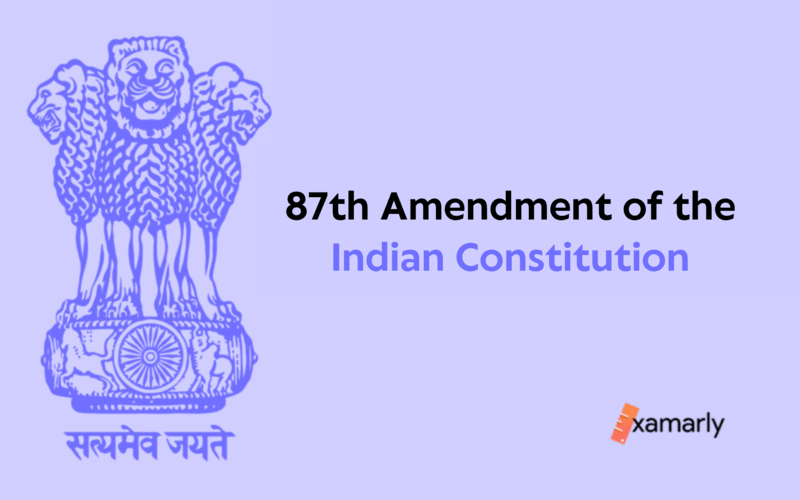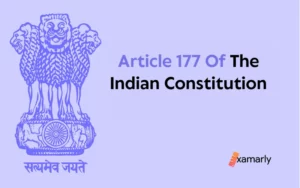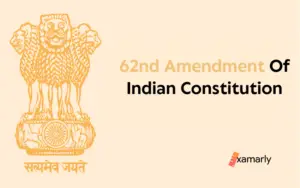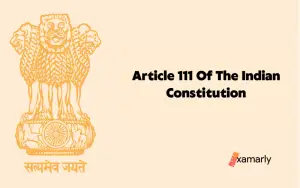Since 1950, the Indian Constitution has undergone 104 amendments. The first amendment was made in 1950 and has since been revised several times.
The Constitution provides the Indian Parliament with the power to amend the Constitution. The amendment procedure differs, depending on what changes are desired, however, the constitution’s fundamental design cannot be changed by parliament.
The 87th Amendment of the Indian Constitution is a major reform in our nation’s constitutional structure.
This act provided the readjusting and rationalization of the state’s territorial constituencies based on the population figure of 2001.
The 87th Amendment of the Indian Constitution
87th Amendment of the Indian Constitution, An Act to amend the Delimitation Act, 2002. This Act may be called the Delimitation (Amendment) Act, of 2003.
Under this act, electoral constituencies, including the reserved seats for SCs and STs, may be readjusted by the 2001 population census without altering the number reservation of seats allotted to States in the legislative bodies.
Salient Features and Facts
The 87th amendment makes changes to special provisions of the Constitution, and provisions that benefit STs and SCs.
- The Commission’s principal duty under the article is to readjust the territorial districts of Legislative Assemblies of each State by the number of reservation of seats allotted to each State.
- Based on the outcome of the 1991 census, the responsibility of modifying the reserved seats for the SCs and STs lies on the commission.
- The Election Commission of India provided secretarial support to the Commission when it started operating. The work of the Commission is expected to be finished in two years.
Date Enacted
BE IT ENACTED BY HOUSES of PARLIAMENT, On 22ND DAY OF JUNE 2003, in the Fifty-fourth Year of the Indian Republic.
Statement of Objects and Reasons
The Eighty-seventh Amendment to the Indian Constitution is an important piece of legislation aimed at improving the political system.
It increases the latitude in which the Indian Parliament may amend the Constitution.t also makes it mandatory to obtain the assent of the president before constitutional amendments can take effect.
- The delimitation which had been carried out after a pause of 30 years should not be done based on the 1991 census figures stated by the Delimitation Commission in a letter to the government under the illumination of various experts, intellectuals, lawyers, and politicians
- Many political parties indicated their opinion that the delimitation of Parliamentary and Assembly constituencies should be done based on the 2001 census at an all-party meeting on the delimitation commission’s operation on March 13, 2003. It was decided that any political group or politician with suggestions or proposals for amending the pertinent census from 1991 to 2001 can propose or present them in writing to the minister of law and justice as discussed in the meeting. Some significant political parties that answered are in favour of using the Census of 2001 as the basis for delimitation.
- To prevent affecting the total of reserved seats granted to States in the legislature, it has been decided to facilitate the rearranging of electoral constituencies, including all those assigned for the Scheduled Tribes and the Schedule Castes by the census figures for the year 2001.
Prominent People Involved
Accordingly, the Delimitation Commission was formulated on 12 July 2002, with the concerned council of ministers- State Election Commissioners and retired Judge Shri Justice Kuldip Singh of Supreme Court serving as its ex officio members. Shri B.B. Tandon is an election commissioner for the Commission of Election of India.
Important Provisions In the 87th Amendment of the Indian Constitution
The 87th Amendment to the Indian Constitution enacted new laws for the welfare of the people in India and was repealed by Subhash C. JAIN Secy. Govt to India. This amendment of article 87th changed the subject matter of the population figure for the year 1991 to 2001 census.
- Amendment of Article 81, – in this article 81 of the constitution in clause (3), In section 4 of the principal Act, in sub-section (2), for the figures “1991”, the figures
“2001” shall be substituted. - Amendment of Article 81, – in this article 81 of the constitution in clause (3),
(i) in clause (a), for the figures “1991”, the figures “2001” shall be
substituted;
(ii) in clause (b), for the figures “1991”, the figures “2001” shall be
substituted. - Amendment to Article 81, which reads as follows: In subsection (1) of section 9 of the primary Act, the number “1991” shall be replaced with the number “2001;”
- (1) The Delimitation (Amendment) Ordinance, 2003 is hereby repealed.
(2) Without such repeal, if any action or anything is done under the regulation which is reformed by ordinance must be done or take place by the regulation as reformed by this act.
Summing Up
- The Delimitation which was done after 30 years gap should not be done based on the outdated figures of the census 1991.
- Proposal for refixation of the seats allotted for SC and ST candidates in the Legislative Assemblies and the House of Parliament of the States based on the population ascertained at the census for the year 1991.
FAQ’s
What is the 87th constitutional amendment?
This amendment ensured that states’ territorial constituencies would be readjusted and rationalized based on a census from the 2001 census rather than the 1991 census.
What is the Delimitation of Commission?
The Delimitation commission or Boundary commission of India is a commission established by the Government of India under the provisions of the Delimitation Commission Act. The main task of the commission is redrawing the boundaries of the various assembly and Lok Sabha constituencies based on a recent census.
What is the Parliament Delimitation Act?
An act to address matters related to the reallocation of seats in the House of the People among the States, the overall number of seats in each State’s Legislative Assembly, the division of each State and Union territory with a Legislative Assembly into territorial constituencies, and elections to the House of the Parliament and Legislative Assemblies of the States and Union territories.
What is delimitation in India?
Delimitation is the process of redrawing the boundaries of parliamentary and assembly constituencies to ensure that each constituency has roughly the same number of voters, in order to make elections more fair and equitable.
Who conducts delimitation in India?
The Delimitation Commission is responsible for conducting delimitation in India. The commission is appointed by the President of India and consists of a retired judge of the Supreme Court as its chairperson, as well as the Chief Election Commissioner and the respective state Election Commissioners as ex-officio members.






